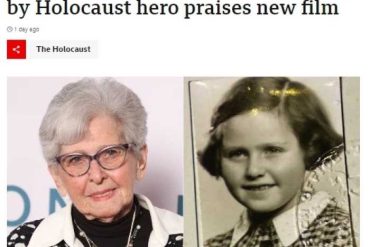Apparently still unable to let go of the subject of the Israeli elections, the BBC featured another report on the subject by the Jerusalem Bureau’s Kevin Connolly in its January 26th edition of ‘From Our Own Correspondent’ – broadcast on BBC Radio 4 and the BBC World Service. 
A podcast of the programme can be downloaded or heard here. Connolly’s report begins at 01:26, but it is also worth listening to the introduction by the programme’s presenter Kate Adie from 00:39, in which she once more repeats the unquestioned mantra of “the deadlocked peace process” as one of the “pressing regional matters”. Alternatively, a fairly accurate transcript of Connolly’s radio report can be read in the magazine section of the BBC News website.
Moving on past the rather laboured introduction, we reach Connolly’s assessment of democracy in the Middle East; one which seems riskily hasty if one considers the track record of elected Islamist regimes in the region so far.
“Israeli officials have long made the point that theirs is the only democracy in the Middle East – a claim that calls for a little tweaking or qualification in the light of Egypt’s elections last year.”
But the real intention of this report by Connolly seems to be to persuade audiences that the BBC’s pre-election analysis was not as far off the mark as they may think.
You see, if you happened to think that the BBC’s energetic promotion of the notion that Israelis were about to elect a right-wing government was mistaken then, according to Connolly, it is you who are wrong. And in order to explain just how wrong you were, Connolly says:
“What is interesting about this election is that the dynamic new force in parliament comes not from the far-right of Israeli politics as many expected, but from the centre.
A new party called “There is a Future” is the second-largest force in the new Knesset.
It is led by a popular television personality called Yair Lapid. If you are British or American, you will have to imagine David Dimbleby or David Letterman stepping down from the screen to sort the country out.”
So far, so good. But Connolly then continues:
“Using the term “centrist” in the context of Israeli politics is not always helpful.
I suspect that to many Europeans, it conjures an image of a leader who would be much less tough in negotiations with the Palestinians than Mr Netanyahu would.
But Mr Lapid does not believe that Israel should have to divide Jerusalem with the Palestinians in a future peace deal – one of the core elements of the two-state solution that the wider world continues to believe in.
That Mr Lapid is labelled a centrist perhaps shows you where the centre of gravity of Israeli opinion on such matters lies these days.”
So you see, the BBC was not wrong: Israelis did elect a far-right government after all, because Kevin Connolly has just ‘shown’ that in Israeli politics – which apparently should be defined in European terms and solely in relation to the ‘peace process’, ignoring aspects such as economic policy – even the Centre is Right.
And how does he pull that off? By blinkering his audience into focusing on one single issue – the subject of the possible re-division of Israel’s capital city – which Connolly should know is just one of many issues defined in internationally recognized agreements as subjects for final status negotiations between Israel and the Palestinian Authority. The fact that Yair Lapid – or any other Israeli – may consider the division of Jerusalem undesirable is not a rejection of negotiations with a Palestinian Authority genuinely interested in reaching a settlement.
Of course Connolly’s convenient tweak of the Israeli political spectrum does nothing to explain why, in all its pre-election coverage of the Israeli Right (and only the right), did the Yesh Atid party barely get a mention. Rather embarrassingly, Connolly also seems to have forgotten that only three days previously he himself wrote the following words:
“But the sudden and decisive lurch to the right that many predicted hasn’t happened.
The results show that there’s plenty of life on the left and the centre of Israeli politics too.”
Unfortunately, this latest report by Connolly appears to indicate that not only is the BBC nowhere near engaging in the much-needed self-criticism shown to be so necessary by its coverage of the Israeli elections, but that it appears to be determined to avoid that introspection like the plague, even if it makes itself and its correspondents look very silly in the process.




